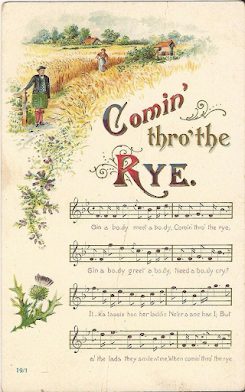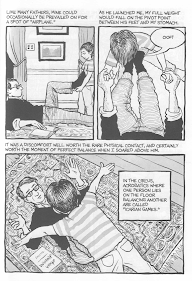When the Parents Come...
Although each chapter in Sag Harbor gives way to a crucial development in Benji’s coming-of-age narrative during this particular summer, the chapter, “To Prevent Flare-Ups,” stood out to me because it is the first time we hear in depth about Benji’s entire family dynamic. Benji and Reggie have been navigating their summer vacation on their own until now, and the lack of adult supervision sometimes leads them to detrimental situations; however, the arrival of their parents doesn't exactly bring back the stability that one might expect from adults.
By themselves, Benji and Reggie more easily succumb to potentially harmful plans with their friends, for example, the BB-gun war where Benji actually gets wounded after Randy breaks the rules and pumps his BB gun more than twice (causing breakage of the skin). They had purposefully created this rule in order to avoid hurting anyone because their intention was to still have a “proper” adult fight but without any of the actual consequences. In a way, this scene depicts their struggle to define the blurry line between childhood and adulthood--safety and risk. On one hand, they want to be more “grown up,” which for them includes fighting with guns, yet on the other hand, they understand they are responsible for themselves, so they create rules, making the fight seem more like a game. When Randy breaks these rules and hurts Benji, there is also a kind of metaphorical breaking of the line that had once divided their games from more childlike to adult, as if it was at this moment their more innocent intended activities were no longer harmless.
In stories of where the parents come back after leaving their kids alone at home, many times it is like order is restored again. When Benji and Reggie’s parents return to the beach house, however, the dynamic changes for the worse. While their family seems quite normal on the outside (Benji even says they’re like “a Cosby family” (192)), on the inside, the atmosphere is always tense because of the dad, who drinks and can be physically and verbally abusive. Their dad, even though he is the adult, ends up creating more chaos for Benji and Reggie. Although one could say that there is similar chaos when Benji and Reggie are alone, like with the BB gun fight, they seem to have more responsibility over their actions, thus propelling their coming-of-age narrative. This is particularly implied when Benji, who is narrating the novel as an adult, says after the gun fight, “For some of us, those were our first guns, a rehearsal,” and how one of his friends was now dead and another was paralyzed, both because of being shot (191). With their desire to enter the enticingly mature stage of adult life comes learning how to take responsibility for their consequences as well. Yet this new kind of freedom becomes compromised at home because their lives are so heavily influenced by their dad. Something as simple as Benji’s new haircut, for example, could infuriate his dad since he had always given him a haircut, and Benji could become the new victim.
There is not only a murky boundary between childhood and adulthood that Benji must discover, but there is also a silent divide between this exploration and home life, complicating his coming-of-age narrative even further.


ReplyDeleteGreat analysis! I found this chapter, "To Prevent Flare-Ups," in Sag Harbor to be incredibly thought-provoking. It shines a light on Benji's family dynamics and the hurdles he encounters during his summer adventure. What struck me the most was how Benji and Reggie, left to their own devices, find themselves in risky situations like the BB-gun war, blurring the lines between childhood and adulthood. Nice post!
Great post! I like how you point out that there is too little regulation when they are by themselves and too much regulation with their parents (especially their father). The whole chapter kind of stook out to me as well, because it's the first time that there's been a restrictive/regulatory force for Benji/Reggie in the book. I also like how you point out that this dynamic is one that they have to figure out to finish their comining-of-age.
ReplyDelete*coming-of-age
Delete